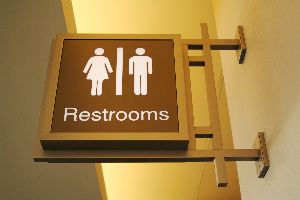
Bladder issues come in several forms, including those that fall into the ‘overactive’ category. An overactive bladder means you experience sudden urges to urinate, among other symptoms. Learn more about the symptoms of this common condition here, as well as what treatment options are available.
Signs & Symptoms

In addition to the sudden urge to urinate that can be challenging to control, overactive bladder symptoms can include involuntary urine loss, or incontinence. Frequent urination is common, such as passing urine more than eight times over 24-hour periods. You might wake up at least two times during the night to urinate or feel the urge to go during work projects and meetings.
Overactive problems naturally vary by person, as can the causes. Some experience these symptoms because of weak pelvic muscles that cause the bladder to sag and leak or because of neurological conditions that create communication issues between the brain and bladder, such as multiple sclerosis (MS) and Parkinson’s disease. Other causes include nerve damage, including damage from abdominal, spinal, and pelvic trauma.
Treatments
Doctors use various tests to diagnose an overactive bladder, including bladder scans, physical examinations, and urodynamic testing that assesses the organ’s ability to hold urine. Treatment depends on the cause but usually includes avoiding foods and diuretic drinks that cause bladder irritation, including coffee, alcoholic drinks, tea, chocolate, soda, and spicy fare.
Kegel exercises and biofeedback sessions help strengthen the bladder muscles for optimal urine storage, while double voiding can also prove beneficial. Double voiding is when you urinate, wait a few seconds, then try again to fully empty your bladder. Medications can relieve overactive symptoms, as can Botox injections that help bladder muscles relax for increased urine retention.
Severe cases can call for surgery, such as placing a tiny electrode under the lower abdomen or buttocks. The electrode’s pulses regulate the nerve impulses telling the brain to urinate.
If you believe you have an overactive bladder, schedule an appointment at Medical Center Urology in High Point, NC. Serving patients of all ages throughout the Triad Area since 1990, this center treats a wide variety of urinary issues, including incontinence and kidney stones. Call (336) 882-0220 today to make your appointment or visit the website for service details.
About the Business
Have a question? Ask the experts!
Send your question

